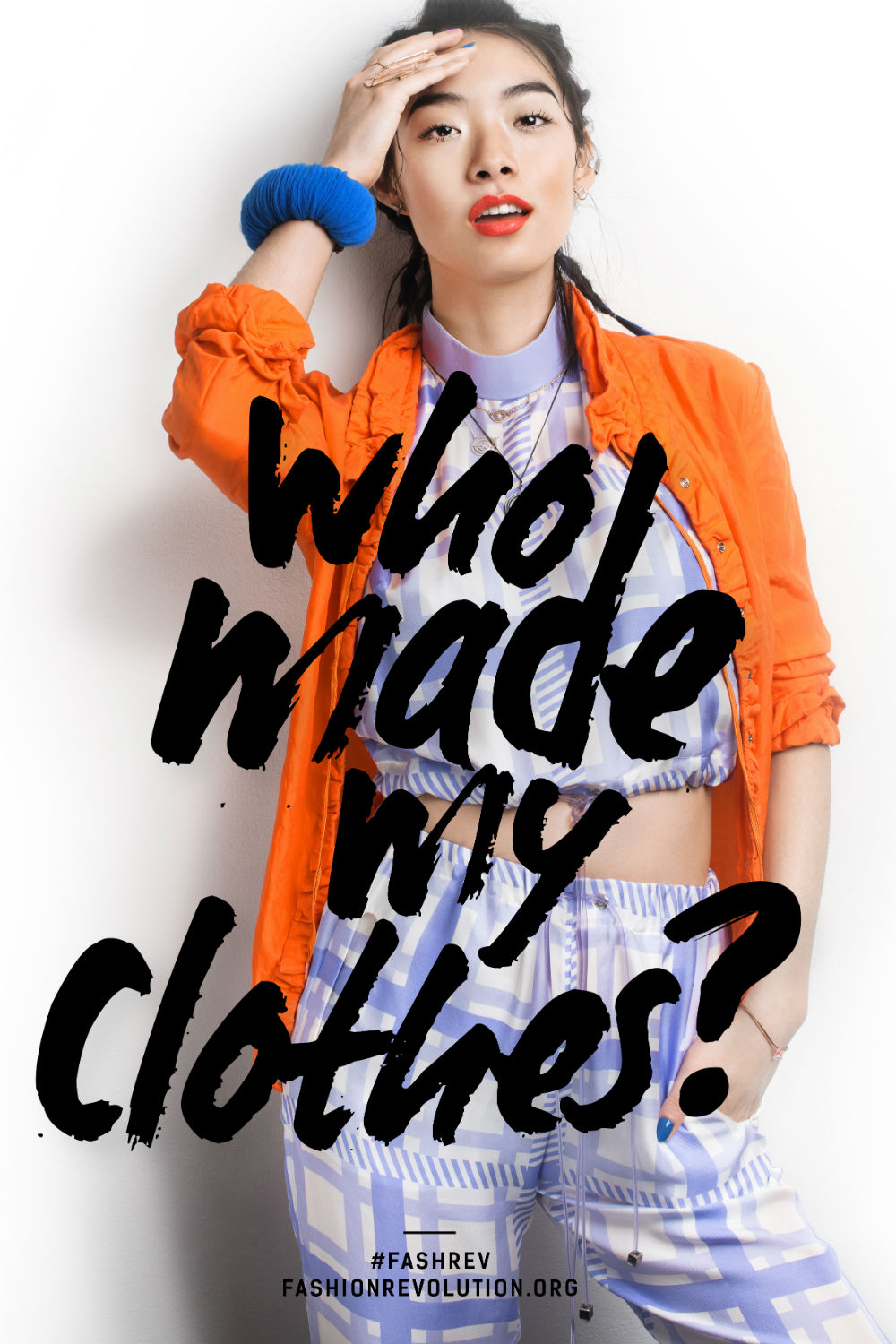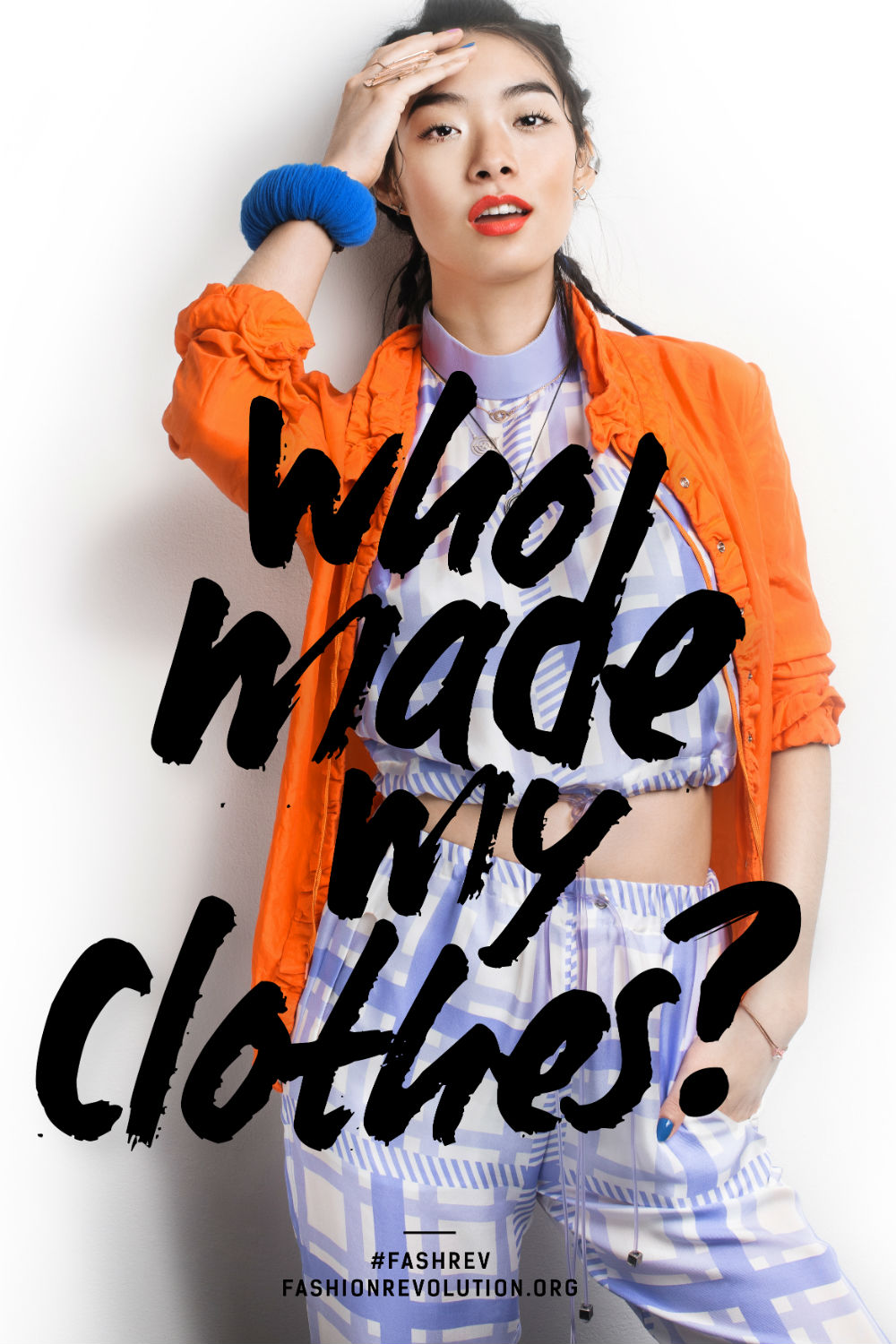It's Fashion Revolution Day! Here's Why It's So Important To Know Where Our Clothes Are Made...
Do you know who made your clothes?

Do you know who made your clothes?
Today, on Fashion Revolution Day, it's been exactly two years since 1133 people were killed in the collapse of the Rana Plaza clothing factory in Bangladesh. Using the event to remember the lives lost and drive change in the garment manufacturing industries for good, we asked founder Carry Somers what has changed since the catastrophe and how you can get involved this year...
It has now been two years since the Rana Plaza disaster – has there been any change in the clothing manufacture communities?
'There have been many improvements in the fashion supply chain since the dust has settled on the Rana Plaza disaster, although it is unfortunate that it has taken a tragedy of this scale to start to bring about change. The Bangladesh Accord is a significant milestone towards better working conditions in Bangladesh and hopefully throughout the industry. The new business model being developed is based more on a bottom-up than top-down approach, with stakeholder engagement throughout the supply chain, trade union engagement, amendments to labour law, improved training and investment in improvements to fire and building standards. However, there is still more to be done. The increase in the minimum wages in Bangladesh seems good news, but workers have seen little real benefit as this had a knock on effect on prices charged by slum landlords and food shops. The minimum wage still only covers 60% of the cost of living in a slum. What will really keep factories compliant is when all workers have a voice and they can speak out when something is wrong. This is why Fashion Revolution’s aim to re-connect the supply chain is so important; we need to give a voice to the makers of our clothes.'
What was the impact of the first Fashion Revolution Day last year?
'We could never have envisaged the enormous impact of the first Fashion Revolution Day. We were the number 1 global trend on Twitter with hundreds of thousands of people calling on brands for greater transparency. However, very few brands responded and we certainly want to see more engagement from mainstream fashion brands and retailers this year. I was told by an industry insider that for every person who took an inside-out selfie and contacted the brand last year, the brands took it as representing 10,000 other people who thought the same way, but couldn’t be bothered to do anything about it. We have incredible power as consumers, if we choose to use it.'
With your cooperative brand, Pachacuti, you have learnt first hand what good, ethical fashion production looks like – has that inspired this movement?
Celebrity news, beauty, fashion advice, and fascinating features, delivered straight to your inbox!
'I founded Pachacuti 23 years ago, and we have certainly been one of the most pioneering global brands in terms of traceability, tracking our Panama hats back to the GPS co-ordinates of each weaver’s house and back to the parcels of land where the straw grows on community owned plantations. In the aftermath of the Rana Plaza collapse, everywhere I looked, there were newspaper articles calling for a more ethical fashion industry. The Rana Plaza catastrophe was a metaphorical call to arms. The idea for Fashion Revolution Day literally popped into my head in the bath a few days after the Rana Plaza disaster and it seemed like a good enough idea to act on! I could never have envisaged the speed and scale of its growth. Today it is a global movement in 71 countries.'

What was your overall aim in creating Fashion Revolution day?
'Whilst much has been done by individual organisations over the years to bring about change, the aim of creating Fashion Revolution was to provide a platform for best practice initiatives from across the supply chain. Everything from Fairtrade, which focuses on the cotton farmer at the beginning of the supply chain to the designers finding creative ways reduce waste. We know that the pressures and complexities of our global fashion industry make sustainability difficult to achieve, but by collaborating and collecting evidence, and by working alongside experts, Fashion Revolution will showcase realistic sustainable solutions and translating them into a reality that works for fashion.'
Have you seen any change in how big brands now approach production of their clothes?
'Transparency means companies know who makes their clothes – at least where they are stitched as a first port of call – and then communicate this to their customers, shareholders and staff. We have certainly seen a lot more brands publishing their factory lists, such as GStarRAW over the past year. At the launch of their latest sustainability report this month, H&M have committed to publishing their second tier factories.'
What questions should consumers be asking brands about where their clothes are made?
'We’re not asking people to boycott their favourite stores, we need to change the fashion industry from within. By asking the brands and retailers where we like to shop Who Made My Clothes? And following the four step instructions online at fashionrevolution.org we can put pressure on them to be more transparent about their supply chains. Also, ask at the till every time you buy an item of clothing. If the shop assistant doesn’t know, the message will eventually filter up to the manager. Consumers didn’t cause this problem, but that doesn’t mean that we shouldn’t be part of the solution. Brands and retailers may not be paying attention to what the people in their supply chain are saying, but they will most certainly be paying attention to what their customers are saying. We have incredible power as consumers to effect change. We just need to use it!'
The leading destination for fashion, beauty, shopping and finger-on-the-pulse views on the latest issues. Marie Claire's travel content helps you delight in discovering new destinations around the globe, offering a unique – and sometimes unchartered – travel experience. From new hotel openings to the destinations tipped to take over our travel calendars, this iconic name has it covered.